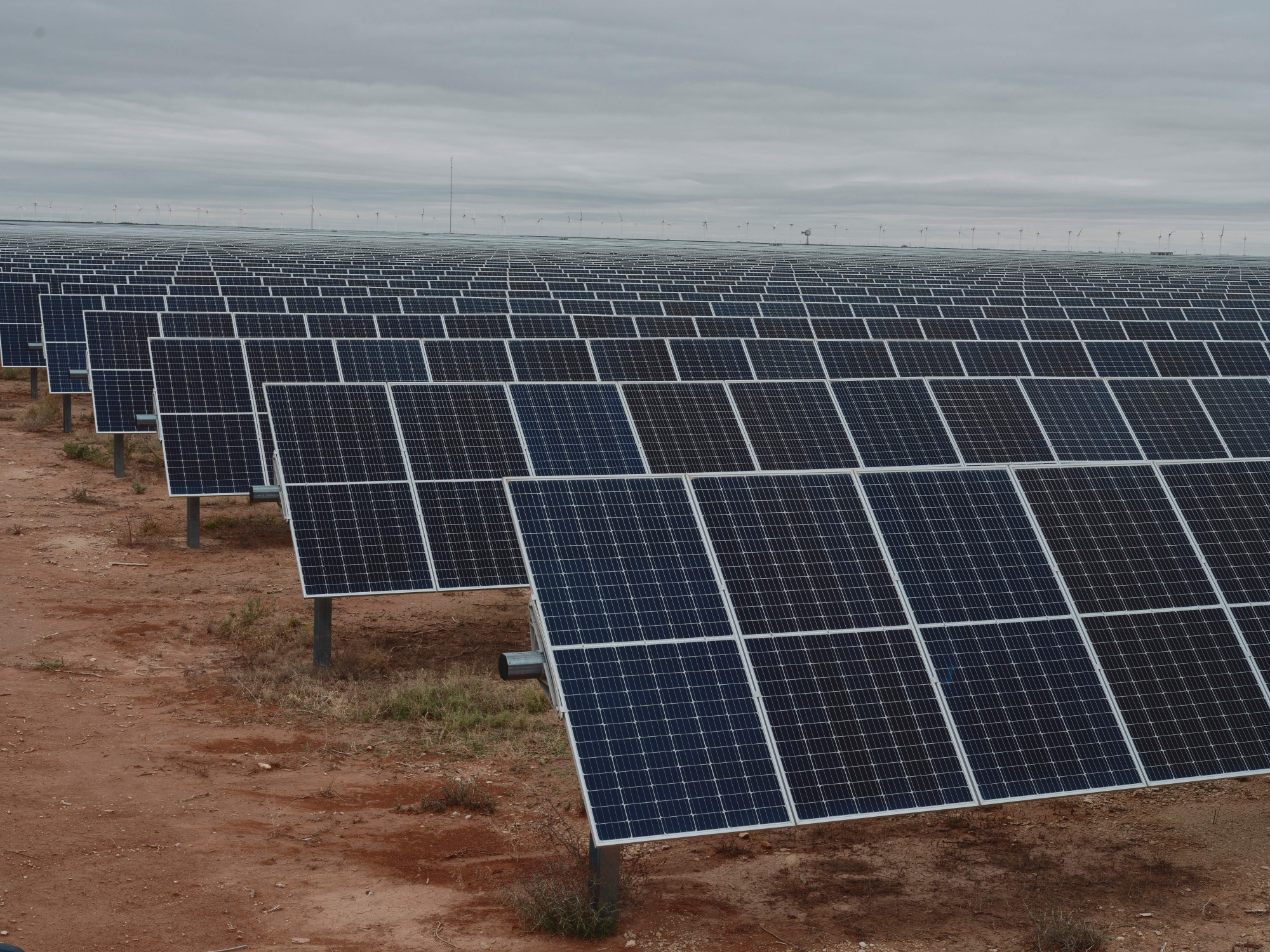US efforts to promote the expansion of India’s solar industry may have opened a back door to components made with forced labour in China.
India’s largest solar producer, Waaree Energies Ltd., has sent millions of panels to the US with components from a Chinese company whose products were repeatedly denied entry to the US market over concerns about forced labour, a Bloomberg News examination of Indian and US import records shows. Those components, solar cells produced by China’s Longi Green Energy Technology Co. at plants in Malaysia and Vietnam, are used in Waaree panels blanketing solar farms in Texas and other states.
Imports of Waaree panels raise questions about how US Customs and Border Protection officials are enforcing a ban on products tied to the repression of Uyghur people in China’s Xinjiang region. The agency has detained thousands of shipments of solar panels made by Chinese-owned companies since it began enforcing the ban in June 2022 — interventions that companies can overturn by providing evidence their supply chains don’t involve Xinjiang sources.
That focus on China has created an opportunity for Indian solar producers, which exported almost $2 billion worth of panels to the US in the first 11 months of last year, a fivefold increase over all of 2022, according to data compiled by BloombergNEF.
“Even panels that say, ‘Made in India’ are likely to be affected by Uyghur forced labour,” Laura Murphy, co-author of an August 2023 report about the solar supply chain, said in October before being named a Customs enforcement adviser at the Department of Homeland Security. Her report said that because polysilicon from multiple sources in China is often blended together, there’s a “very high” risk that panels made at Longi factories in Southeast Asia had used at least some materials from Xinjiang.
Longi, the world’s largest solar producer, based in Xi’an, China, didn’t respond to requests for comment. The company has said, in response to Murphy’s report, that it has created a separate supply chain for the US market that uses material only from non-Chinese sources.
Sunil Rathi, Waaree’s sales director, said in an emailed statement that the Indian firm “has been complying with the law of the land wherever we operate.” He said its customers “have stringent requirements, and they make sure we meet those for every shipment.”
Global concerns that Chinese officials were incarcerating or forcing members of the Uyghur minority to work in factories led Congress to enact the Uyghur Forced Labor Prevention Act, known as UFLPA, in December 2021. The Chinese government has denied any human rights violations in Xinjiang, saying its policies there are aimed at education, eradicating extremism and alleviating poverty.
Some members of Congress and industry groups have criticized Customs for uneven enforcement of the law, which covers a range of products from tomatoes to shoes. At least 16 members of the US House or Senate have written to the Department of Homeland Security requesting stricter enforcement. The latest, in January, from representatives Mike Gallagher, a Wisconsin Republican who chairs the Select Committee on the Chinese Communist Party, and ranking member Raja Krishnamoorthi, an Illinois Democrat, cited “a failure to fully prosecute or otherwise deter trans-shipment of forced labour goods through third countries.”
The value of apparel and textiles detained for inspection by Customs in the first seven months of 2023 dropped 52% from the previous seven months, according to the National Council of Textile Organizations, which analyzed data from the agency. At the same time, the value of intercepted electronics shipments rose 6%.

